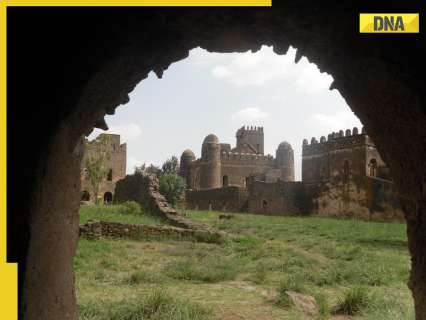Now Reading: Eritrea: Stuck in 2017, a Nation Frozen in Time and History
-
01
Eritrea: Stuck in 2017, a Nation Frozen in Time and History
Eritrea: Stuck in 2017, a Nation Frozen in Time and History

Quick Summary
- Ethiopia uses a unique calendar system, the Ge’ez calendar, which is seven to eight years behind the Gregorian calendar commonly used worldwide.
- The Ethiopian calendar consists of 13 months: 12 months with 30 days each, and an additional month called Pagumē that has five or six days depending on whether it is a leap year.
- The Ethiopian New Year is celebrated on September 11 (or September 12 in leap years),while Christmas falls on January 7 in alignment with Orthodox Christian traditions.
- The difference between calendars stems from distinct calculations of Jesus Christ’s birth: Ethiopia counts it as occurring in 7 BC versus 1 AD in the Gregorian system.
- Despite this unique calendrical system for domestic purposes, Ethiopia engages with international affairs using the gregorian calendar to ensure consistency globally.
- Historically important, Ethiopia holds claim as one of africa’s oldest countries and was never colonized fully, despite temporary Italian occupation under Mussolini from 1935 to 1941.
- Fossil discoveries such as “Lucy,” a famous hominid skeleton estimated at around 3.2 million years old, mark Ethiopia as central to human history.
- Today, Ethiopia is Africa’s second-most populous country with over 130 million people.
Indian Opinion Analysis
Ethiopia’s use of its own calendar highlights how cultural individuality can coexist within global systems without significant conflict or inefficiency-a point worth noting for India given its sociocultural diversity across states and communities. While international practices dominate global diplomacy and commerce through standards like the Gregorian calendar or English language usage, societies can still retain their cultural identities domestically through localized traditions.
For India-multicultural yet integrated into international frameworks-this showcases how balancing customary practices with modern globalization helps preserve heritage while participating effectively in global exchanges. Moreover, ancient parallels exist; both nations resisted colonial domination (India over British rule and Ethiopia over Italy), which remains a source of national pride underscoring their sovereign identity today.
Ethiopia’s approach also reiterates that diversity need not impede progress; rather,it accentuates identity amidst participation on an interconnected world stage-an chance resonant for India as it balances tradition with modernization globally.
























